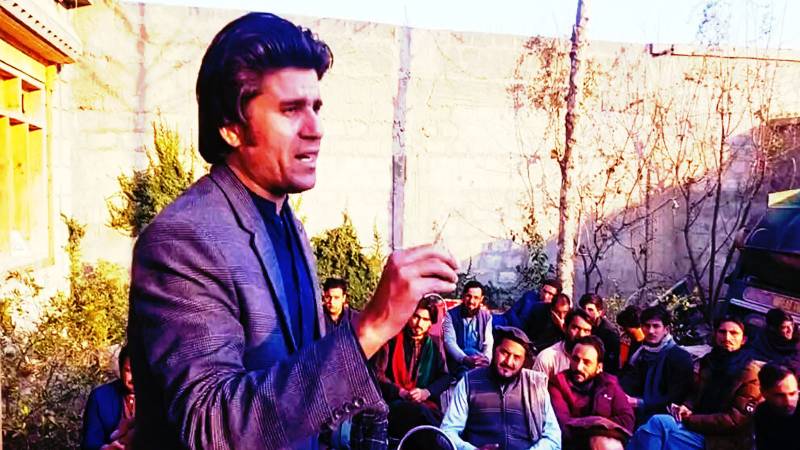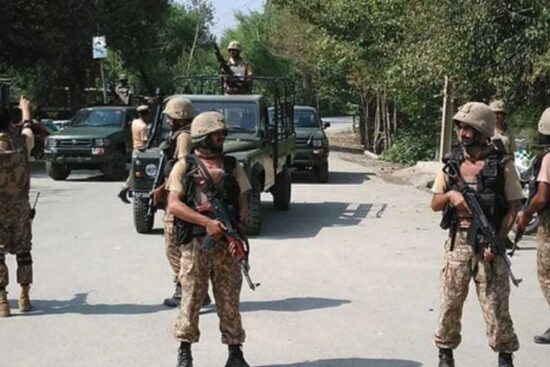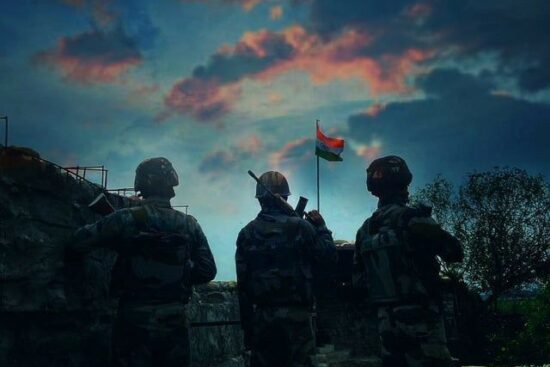
In the heart of Bajaur, Pakistan where the political landscape is as treacherous as the rugged terrain, the tragic tale of Rehan Zeb Khan leaves behind a complex web of narratives that beg the question: How Much Blood Must This Election Claim?
As the news of Rehan’s murder reverberated through the region, the stage was set for a high-stakes narrative clash. Certain political groups, quick on their feet, claimed him as their own, eager to wield his tragedy as a political tool. But wait, although affiliated with the certain political quarters, wasn’t he the independent candidate denied a ticket from the political groups he was affiliated with?
Enter the shadowy figures of alleged establishment-linked social media accounts, casting doubt on the claim of the certain political group and pointing accusing fingers at the party for orchestrating the murder. The blame game intensified, transforming a personal tragedy into a political battlefield.
Family members stepped onto the stage, adding an emotional layer to the unfolding narrative. Rehan’s father, devastated by the loss of his son, pointed the finger squarely at the political group he was associated with. The paternal uncle, adding a touch of personal vendetta, accused an individual, a candidate from a certain political group with a recent history of conflicts with Rehan. Was this a mere family feud, or did it hold the key to a larger political conspiracy?
As the situation progressed, a more ominous player entered the scene – the Islamic State Wilāyah Khorāsān. Claiming responsibility for the murder, this militant proxy introduced a chilling security threat to the political landscape. Their warning, coupled with a past attack on a JUIF political rally, hinted at a broader pattern of targeting political groups.

But why Rehan Zeb? Was he a pawn in a larger game of geopolitical chess owing to his affiliation with a certain political group?
Rehan Zeb’s dual status as an independent candidate and his alleged denial of the ticket from a certain political corner added a layer of intrigue. His claims of receiving death threats from the candidate preferred by the political group threw the narrative into a spin. Was this a classic case of internal party politics turning deadly, or was there more beneath the surface?
Amid these conflicting narratives, what remained apparent was the tragedy being shamelessly manipulated for political point scoring by various quarters simultaneously. The various factions, each with their own version of events, painted a picture of a society where political agendas and personal vendettas intertwined, overshadowing the genuine grief over a young emerging leader’s untimely demise.
As dust settles on Bajaur’s bloody battleground, a grim reality echoes beyond its rugged terrain.
Lost amidst internal discord and political manipulation is perilous oversight – Silent infiltration of external elements seeking to destabilize the very fabric of Pakistan’s west.
As the region grapples with the shadows of geopolitical chess, the forgotten narrative remains the exploitation of discord, a lethal distraction that veils the ominous threats posed by those who wield the ‘third country’ as a tool for chaos.
In the pursuit of power, the true adversaries may linger in the background, obscured by the smoke of internal strife, reminding us that the cost of forgetting extends beyond the political battleground, reaching into the heart of a nation under siege.

















Leave a Reply